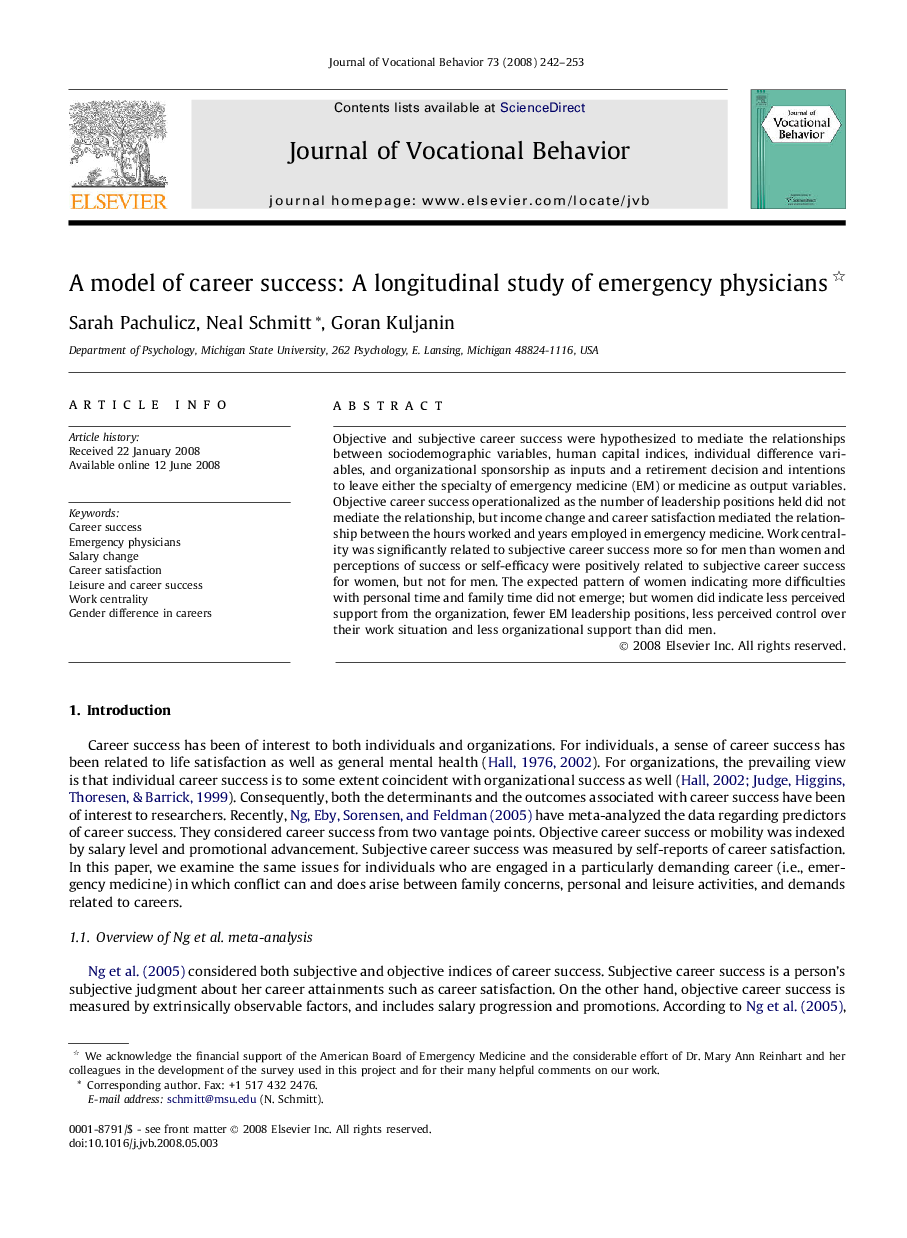| Article ID | Journal | Published Year | Pages | File Type |
|---|---|---|---|---|
| 887501 | Journal of Vocational Behavior | 2008 | 12 Pages |
Objective and subjective career success were hypothesized to mediate the relationships between sociodemographic variables, human capital indices, individual difference variables, and organizational sponsorship as inputs and a retirement decision and intentions to leave either the specialty of emergency medicine (EM) or medicine as output variables. Objective career success operationalized as the number of leadership positions held did not mediate the relationship, but income change and career satisfaction mediated the relationship between the hours worked and years employed in emergency medicine. Work centrality was significantly related to subjective career success more so for men than women and perceptions of success or self-efficacy were positively related to subjective career success for women, but not for men. The expected pattern of women indicating more difficulties with personal time and family time did not emerge; but women did indicate less perceived support from the organization, fewer EM leadership positions, less perceived control over their work situation and less organizational support than did men.
